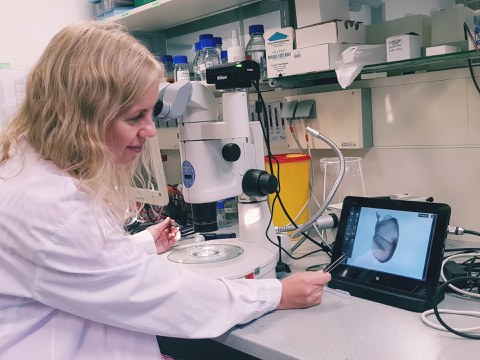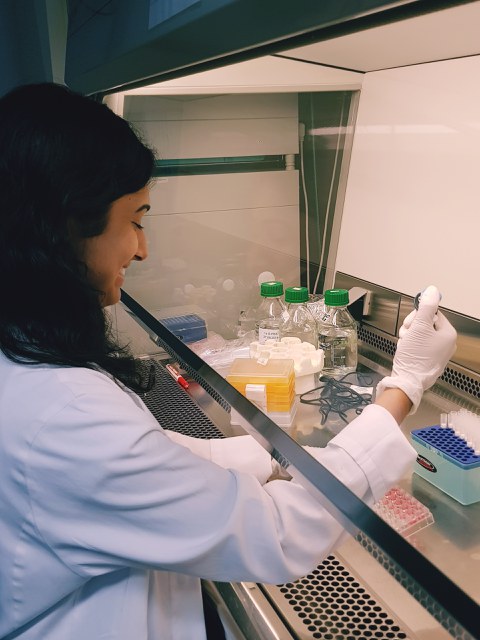Research
Table of contents
Our work focuses on two complementary aspects of genomics,
(i) mechanisms of epigenetic regulation in mammalian development and homeostasis,
(ii) technoplogies of genetic engineering.
Epigenetic Regulation in Chromatin

Dissection of a mouse embryo
Although the complete DNA sequence of an organism encodes the primary information, additional information is added by epigenetic regulation. In higher eukaryotes, epigenetic regulation is conveyed by covalent modifications of DNA (DNA methylation) and histone tails (mainly methylation, acetylation, ubiquitinylation). The patterns of these covalent modifications serve to regulate gene expression and other aspects of chromatin biology. Our experimental approach to unravelling epigenetic mechanisms and hierarchies is based on engineering the mouse genome, particularly for conditional mutagenesis, to dissect function in mouse development, homeostasis and embryonic stem cells in culture.

Cell culture work
We apply advanced reverse genetic strategies, some of which were developed by us, to analyze a select class of epigenetic regulators related to the Trithorax- and Polycomb-Groups. Using protein-tagging and mass spectrometry, we discovered the first histone 3 lysine 4 methyltransferase complex, which was the first link between histone methylation and Trithorax-Group action. This linkage is central to epigenetic regulation in mammalian development and is mutated in a wide variety of cancers. We continue to work on the six histone 3 lysine 4 methyltransferases in mammals particularly using conditional mutagenesis to define the epigenetic mechanisms operating in development, hematopoiesis, germ cell development and the intestine.
Genomic Engineering
We have developed several genetic engineering innovations using site specific and homologous recombination, as well as transposition. Our aim is the fluent manipulation of mammalian genomes. We pioneered the gene switch based on site specific recombinase/steroid hormone fusion proteins that is now widely used for conditional mutagenesis and inducible transgene expression in many systems. We developed the applications of site specific recombination to allele design and precise genome alteration in living cells. To facilitate allele design and complex transgenesis, we introduced the use of homologous recombination for recombinant DNA engineering in the technology termed ‘recombineering’. By expanding the range of DNA engineering, recombineering has become a fundamental aspect of molecular biology.
Future Prospects and Goals
Further work on epigenetic regulators in eukaryotes will be accompanied by advanced engineering strategies to examine roles of epigenetic regulation in mammalian development, stem cells, ageing and disease.We also continue to explore fundamental aspects of DNA recombination with the prospect of developing new technology.
